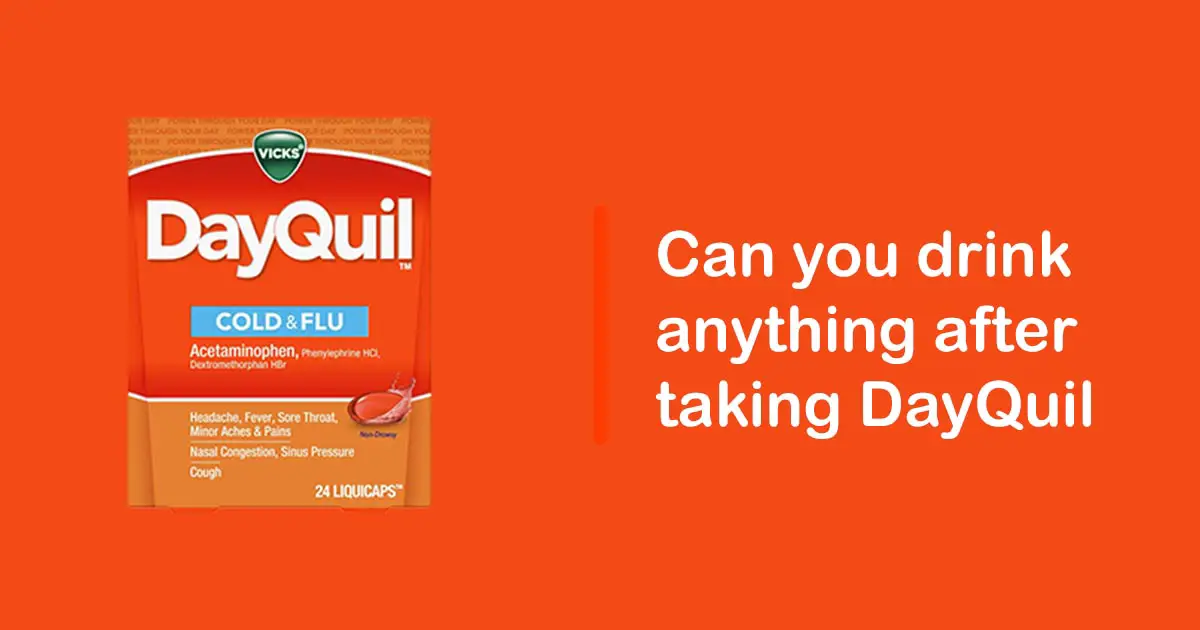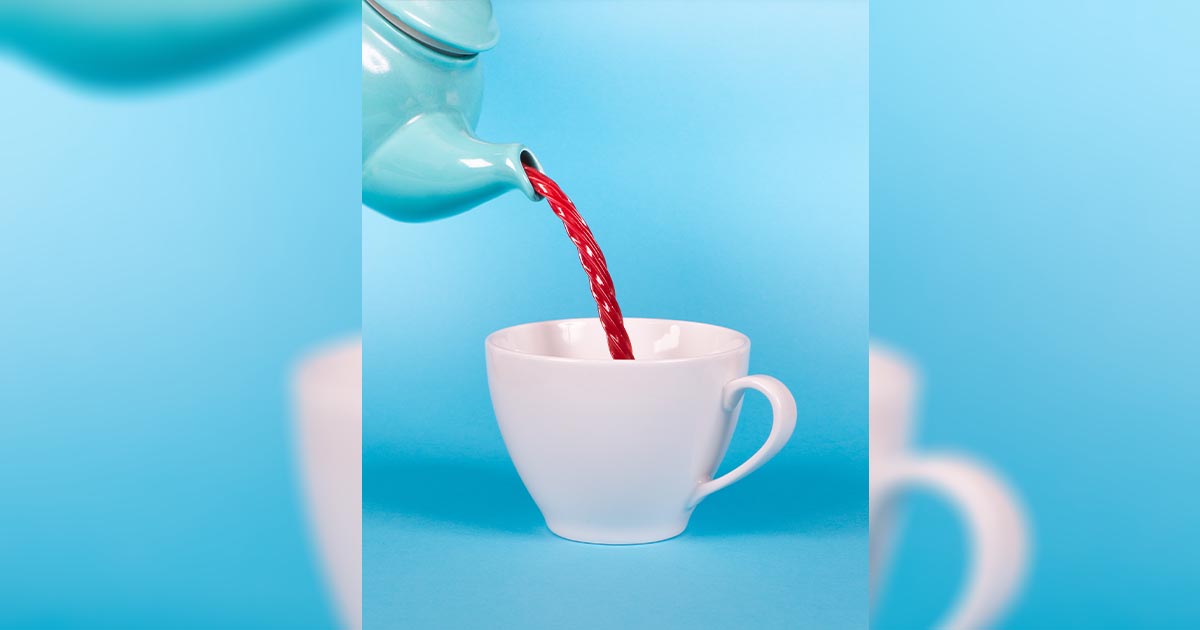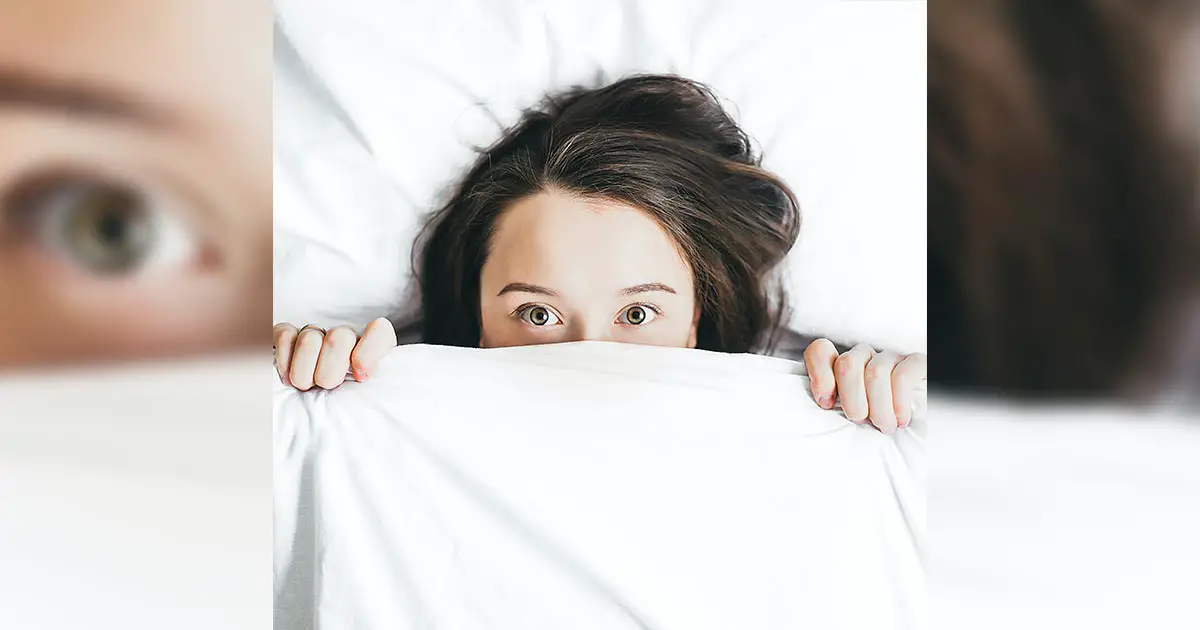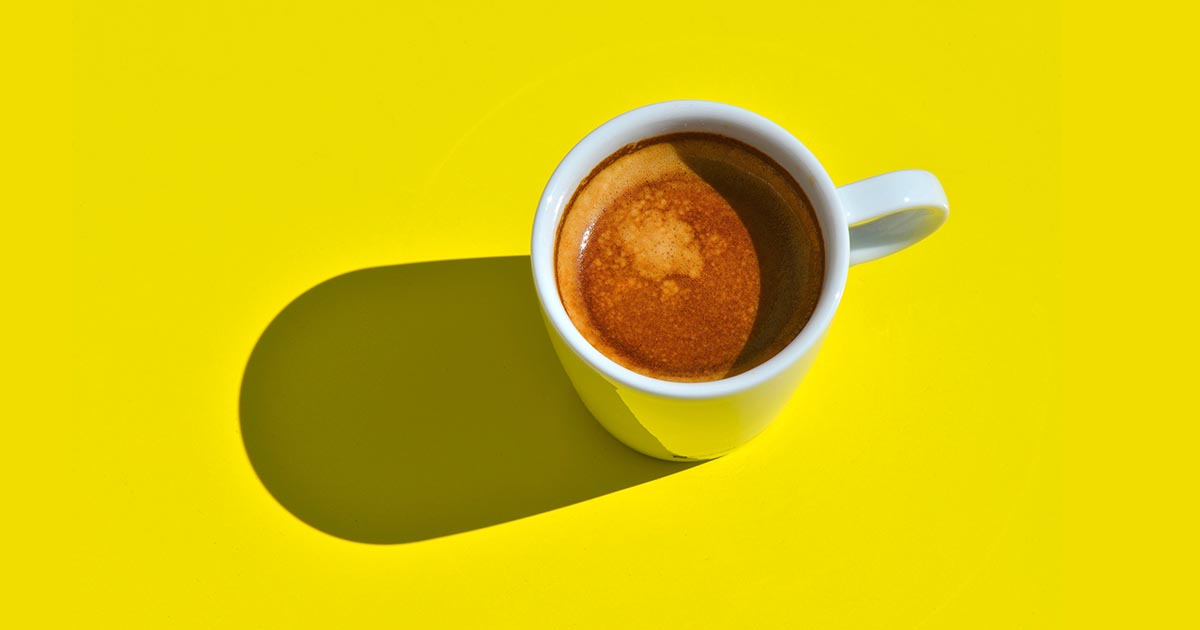Table of Contents
ToggleWelcome, readers! Today, we’re diving into a common query that many of us may have pondered at some point: How long after taking DayQuil can I enjoy a comforting cup of coffee? As we explore the answer to this pressing question, we’ll also address related queries to ensure you have all the information you need for a seamless recovery. So, grab your favorite beverage, get cozy, and let’s unravel the mystery of finding the perfect balance between relief and caffeine consumption.
Understanding DayQuil and Its Impact:
Before we delve into the coffee conundrum, it’s crucial to understand how DayQuil works. DayQuil is a popular over-the-counter medication designed to alleviate symptoms associated with colds and flu, such as congestion, cough, and fever. Its active ingredients, including acetaminophen, dextromethorphan, and phenylephrine, play a crucial role in providing relief.
Can I drink coffee after cold medicine?
It’s generally safe to drink coffee after taking cold medicine, but it’s essential to be aware of the potential interactions between the medication and caffeine. Many over-the-counter cold medications contain ingredients such as decongestants, antihistamines, or pain relievers, which may have side effects like drowsiness.
Caffeine, found in coffee, is a stimulant that can counteract the sedative effects of certain medications. However, combining caffeine with certain medications can also lead to increased heart rate or other side effects. It’s advisable to check the label of your cold medicine for any warnings about interactions with caffeine or other substances.
If you’re uncertain or have specific concerns, it’s a good idea to consult with a healthcare professional or pharmacist. They can provide personalized advice based on your health status and the specific cold medicine you’re taking. Always follow the recommended dosage instructions for both the medication and the caffeine-containing beverage.
Can you drink anything after taking DayQuil?

Yes, you can generally drink water or other non-alcoholic, non-caffeinated beverages after taking DayQuil. It’s important to stay hydrated, especially when you have a cold or flu. However, you should avoid drinking alcohol or beverages containing caffeine shortly after taking DayQuil, as these substances can interact with the medication and may increase the risk of certain side effects.
Always read the label on the DayQuil packaging for specific instructions and consult with a healthcare professional or pharmacist if you have any concerns or questions about the medication and its interactions. Following the recommended guidelines for both the medication and your beverage choices will help ensure your safety and the effectiveness of the treatment.
Can I Take Caffeine with DayQuil?
While it’s generally safe to consume caffeine with DayQuil, you should be mindful of the potential interactions and side effects. DayQuil itself may contain some caffeine, so check the label to see if it’s already included in the medication.
Caffeine is a stimulant, and combining it with certain ingredients in DayQuil, such as decongestants or antihistamines, may lead to an increase in heart rate or blood pressure. Moreover, both caffeine and DayQuil can cause insomnia or sleep disturbances, so it’s advisable to avoid taking them close to bedtime.
If you’re unsure or have specific health concerns, it’s always a good idea to consult with a healthcare professional or pharmacist. They can provide personalized advice based on your individual health condition and the specific ingredients in the DayQuil product you’re using.
How Long After Taking Dayquil Can I Drink Coffee?
You can generally have coffee after taking DayQuil, but it’s essential to be aware of the potential interactions and side effects. DayQuil may contain ingredients such as decongestants or antihistamines, which can cause drowsiness in some individuals. Caffeine, found in coffee, is a stimulant that can counteract the sedative effects of certain medications.
As a general guideline, it’s advisable to wait at least a couple of hours after taking DayQuil before consuming coffee or other caffeinated beverages. This allows the medication to take effect, and it helps you gauge how the combination affects your body.
Always check the label of your specific DayQuil product for any warnings about interactions with caffeine or other substances. If you have concerns or specific health conditions, it’s best to consult with a healthcare professional or pharmacist for personalized advice. They can provide guidance based on your individual health situation and the specific ingredients in the medication.
The Waiting Game: When Can I Indulge in Coffee?
Now, let’s address the main question: How long should you wait after taking DayQuil before savoring your favorite cup of coffee? The key lies in allowing your body enough time to absorb and process the medication. Typically, it’s advisable to wait at least 30 minutes to an hour after taking DayQuil before consuming coffee. This ensures that the active ingredients have entered your system and won’t be affected by the compounds in coffee.
Factors Influencing the Waiting Period:
-
Metabolism: Individual metabolism rates vary, so some may process medications faster than others. If you have a speedy metabolism, you might find that waiting 30 minutes is sufficient.
-
Type of DayQuil: Consider the specific formulation of DayQuil you’ve taken. While standard formulations usually have a similar waiting period, variations with additional ingredients may require a bit more time.
Why Timing Matters
Timing your coffee intake after taking DayQuil is not just a matter of preference; it’s about ensuring your body receives the full benefits of both the medication and the coffee without any interference. Caffeine, a central nervous system stimulant found in coffee, can potentially impact the effectiveness of certain medications. By waiting for an appropriate duration, you allow each substance to work its magic independently.
What should you not mix with DayQuil?

When taking DayQuil or any medication, it’s crucial to be aware of potential interactions that could affect your health or the effectiveness of the treatment. Here are some general guidelines on what you should avoid mixing with DayQuil:
- Alcohol: Mixing alcohol with DayQuil can increase the risk of drowsiness and dizziness. Both alcohol and certain ingredients in DayQuil can depress the central nervous system, and combining them may amplify these effects.
- Caffeine: While moderate caffeine intake is usually okay, excessive consumption may lead to increased heart rate, restlessness, or insomnia. Some DayQuil formulations already contain caffeine, so be mindful of your total caffeine intake from all sources.
- Other Over-the-Counter Medications: Avoid taking other cold or flu medications, especially those containing similar active ingredients. Combining different medications with similar components may lead to an overdose or undesirable side effects.
- Certain Prescription Medications: Consult with your healthcare provider or pharmacist before taking DayQuil if you’re on prescription medications. Some drugs may interact negatively with the ingredients in DayQuil.
-
Monoamine Oxidase Inhibitors (MAOIs): If you are taking MAOIs or have taken them within the past two weeks, you should avoid DayQuil, as there may be potential interactions.
Can I have coffee after taking DayQuil?

Yes, you can generally have coffee after taking DayQuil. DayQuil is a cold and flu medication that typically contains acetaminophen (pain reliever/fever reducer), dextromethorphan (cough suppressant), and phenylephrine (nasal decongestant). None of these ingredients typically interact negatively with caffeine, which is the primary component of coffee.
However, it’s always a good idea to check the specific formulation of the DayQuil you have, as formulations can vary. If you have any concerns or specific health conditions, it’s best to consult with a healthcare professional before combining medications and caffeine. Additionally, keep in mind that both caffeine and some cold medications can cause sleep disturbances, so it’s wise to monitor your own tolerance and adjust your intake accordingly.
Can I take anything else with DayQuil?
When taking DayQuil, it’s important to be cautious about combining it with other medications to avoid potential interactions or overdosing on certain ingredients. Here are some general guidelines:
- Avoid Duplicate Ingredients: Check the labels of other medications you plan to take to ensure they do not contain the same active ingredients as DayQuil. For example, if DayQuil already contains acetaminophen, you should avoid taking other medications that also contain acetaminophen to prevent exceeding the recommended dosage.
- Consult a Healthcare Professional: If you’re considering taking additional medications, especially prescription drugs or supplements, it’s advisable to consult with a healthcare professional. They can provide personalized advice based on your medical history and current health condition.
- Be Cautious with Caffeine: While coffee itself is generally safe with DayQuil, be cautious with other sources of caffeine, such as energy drinks or certain pain relievers that may contain caffeine. Excessive caffeine intake can lead to jitteriness, increased heart rate, and other side effects.
- Monitor Alcohol Consumption: It’s advisable to avoid or limit alcohol consumption when taking DayQuil, as both alcohol and certain cold medications can have sedative effects. Combining them may intensify drowsiness or impair your ability to perform certain tasks.
- Read Labels Carefully: Always read the labels of any over-the-counter or prescription medications you plan to take alongside DayQuil. Pay attention to warnings, contraindications, and potential interactions.
- Consider Your Health Condition: If you have specific health conditions, such as liver disease, high blood pressure, or other chronic illnesses, inform your healthcare provider before taking DayQuil or any other medications.
Remember that individual responses to medications can vary, and it’s essential to prioritize your safety. If you have any doubts or questions, seek advice from a healthcare professional before combining medications.
Does DayQuil raise blood pressure?
DayQuil contains the decongestant phenylephrine, which can cause an increase in blood pressure for some individuals. Phenylephrine works by narrowing blood vessels to reduce nasal congestion. While this can be helpful for relieving congestion, it may also lead to a temporary increase in blood pressure.
If you have pre-existing high blood pressure or cardiovascular conditions, it’s important to be cautious when taking medications that contain phenylephrine, including DayQuil. It’s advisable to consult with a healthcare professional before using DayQuil or any other over-the-counter medication if you have concerns about your blood pressure.
Additionally, if you are monitoring your blood pressure regularly or have a history of hypertension, it may be a good idea to check with your healthcare provider before using DayQuil to ensure it is safe for your specific health situation. They can provide guidance on whether DayQuil is appropriate for you or recommend alternative medications that may have less impact on blood pressure.
Is DayQuil OK before bed?
DayQuil contains various active ingredients, including a decongestant (phenylephrine) and a cough suppressant (dextromethorphan), which can have different effects on individuals. While DayQuil is generally formulated to be taken during the day to relieve symptoms without causing drowsiness, the specific reactions can vary from person to person.
For some individuals, the decongestant in DayQuil (phenylephrine) may cause stimulation and difficulty falling asleep. On the other hand, the cough suppressant (dextromethorphan) can cause drowsiness in some people.
If you’re considering taking DayQuil before bed, it’s essential to be aware of how your body reacts to the medication. If you find that it tends to make you feel more awake or restless, it may be better to take it earlier in the day. If drowsiness is a common side effect for you, then taking it before bedtime may be more suitable.
Always follow the recommended dosage on the product’s label and be aware of any potential interactions with other medications you may be taking. If you have concerns about how DayQuil may affect your sleep or if you’re unsure about its suitability for nighttime use, it’s advisable to consult with a healthcare professional for personalized advice. They can provide guidance based on your health status and any other medications you may be taking.
Will DayQuil keep you awake?

DayQuil is generally formulated to provide relief from cold and flu symptoms without causing drowsiness. However, individual reactions to medications can vary, and some people may experience increased alertness or difficulty sleeping after taking DayQuil.
The decongestant component in DayQuil, phenylephrine, can have stimulating effects on some individuals, potentially causing a feeling of wakefulness or restlessness. If you are sensitive to decongestants, it’s possible that DayQuil could impact your ability to sleep, especially if taken close to bedtime.
If you’re concerned about the potential for DayQuil to keep you awake, consider taking it earlier in the day. Additionally, pay attention to your body’s response to the medication. If you find that it interferes with your ability to sleep, you may want to choose a different time to take it or explore alternative medications that do not contain stimulating ingredients.
Is DayQuil bad for you when you sleep?
DayQuil is generally formulated to be non-drowsy, which means it is designed to relieve cold and flu symptoms without causing significant sedation. However, individual reactions to medications can vary, and for some people, the ingredients in DayQuil may have effects that could impact sleep.
The decongestant in DayQuil, phenylephrine, can have stimulating effects on some individuals. If you take DayQuil close to bedtime, the stimulating effects may interfere with your ability to fall asleep or stay asleep.
If you’re concerned about the potential impact of DayQuil on your sleep, here are some considerations:
- Time of Administration: To minimize the potential for sleep disruption, it’s advisable to take DayQuil earlier in the day rather than close to bedtime.
- Individual Sensitivity: People react differently to medications. If you find that DayQuil tends to make you feel more awake or restless, it may be better to avoid taking it in the evening.
- Alternative Formulations: Some cold and flu medications come in nighttime formulations that include ingredients to promote sleep. If you need relief before bedtime, you may consider choosing a product specifically labeled for nighttime use.
If you have concerns about the impact of DayQuil on your sleep or if you have underlying health conditions, it’s always a good idea to consult with a healthcare professional for personalized advice. They can provide guidance based on your individual health status and help you find the most suitable options for symptom relief without disrupting your sleep.
Can DayQuil cause anxiety?
DayQuil contains several active ingredients, and while it is generally formulated to provide relief from cold and flu symptoms without causing anxiety, individual responses to medications can vary.
One of the active ingredients in DayQuil is phenylephrine, which is a decongestant. Decongestants like phenylephrine can, in some individuals, lead to side effects such as increased heart rate or feelings of restlessness. These effects are more commonly associated with higher doses or when individuals are particularly sensitive to the medication.
If you are prone to anxiety or have a history of anxiety disorders, it’s advisable to be cautious when taking medications that contain decongestants. If you experience symptoms such as increased anxiety, jitteriness, or restlessness after taking DayQuil, it may be related to the decongestant component.
it’s recommended to consult with a healthcare professional. They can provide personalized advice based on your health history and help determine whether DayQuil is a suitable option for symptom relief in your specific case.
Conclusion:
In conclusion, the next time you find yourself reaching for that cup of coffee after taking DayQuil, it’s crucial to consider the timing. Wondering “How long after taking DayQuil can I drink coffee?” is a common question. Waiting at least 30 minutes to an hour ensures that both the medication and your beloved brew can do their jobs effectively. As we navigate the delicate balance between relief and routine, always prioritize your health and well-being.
Related content:
Can I drink coffee before or after donating plasma? Shocking Facts!


